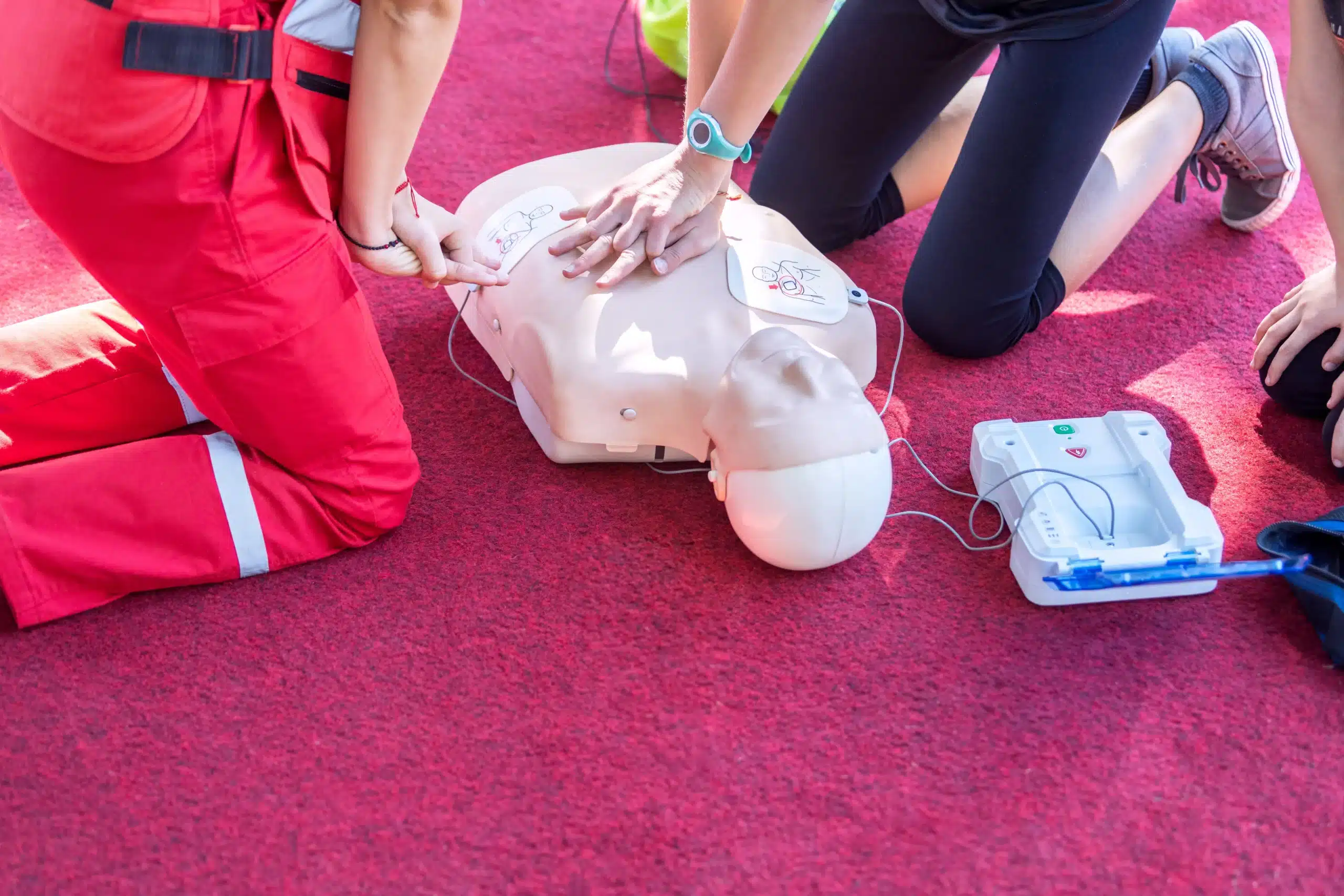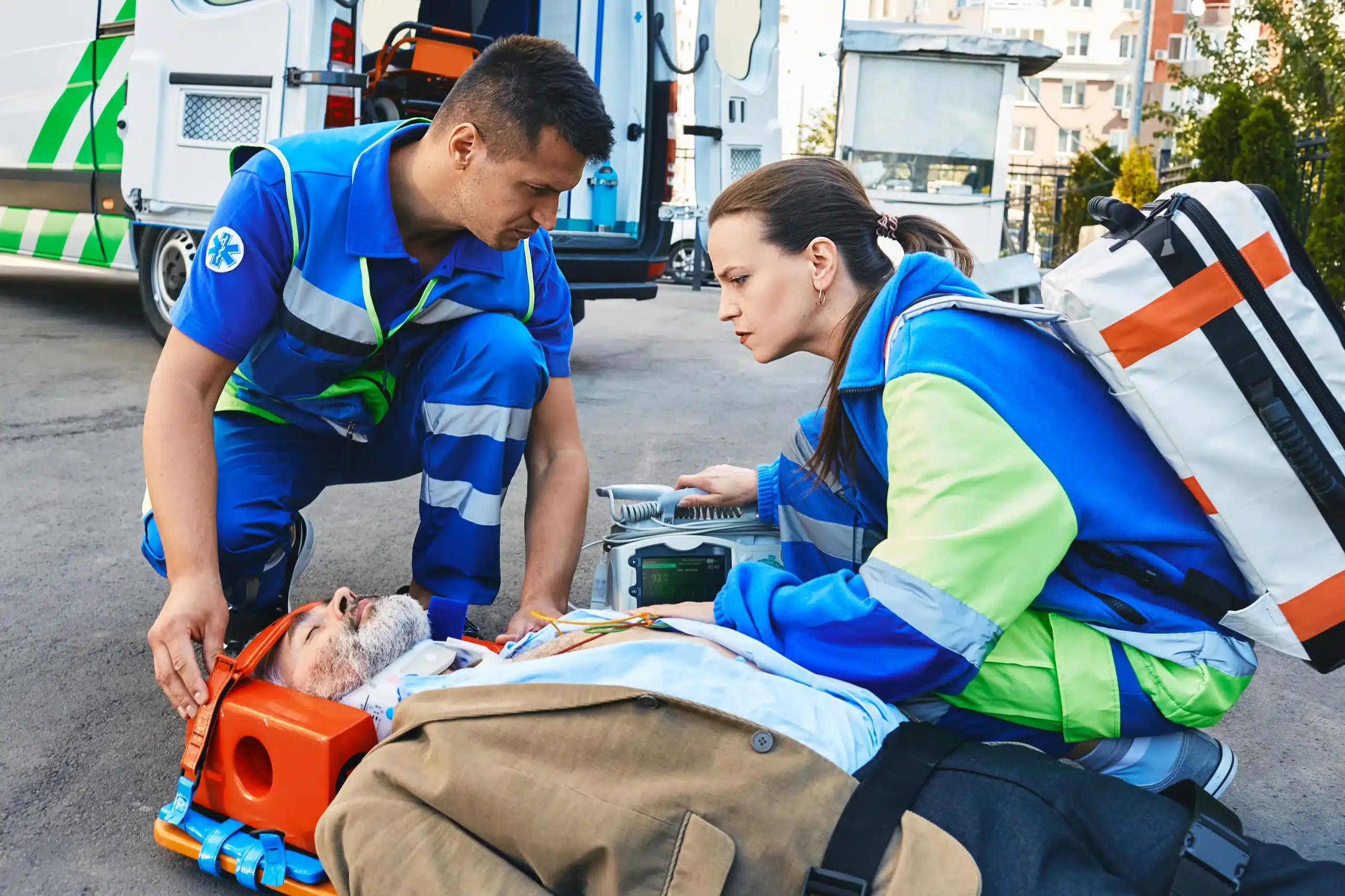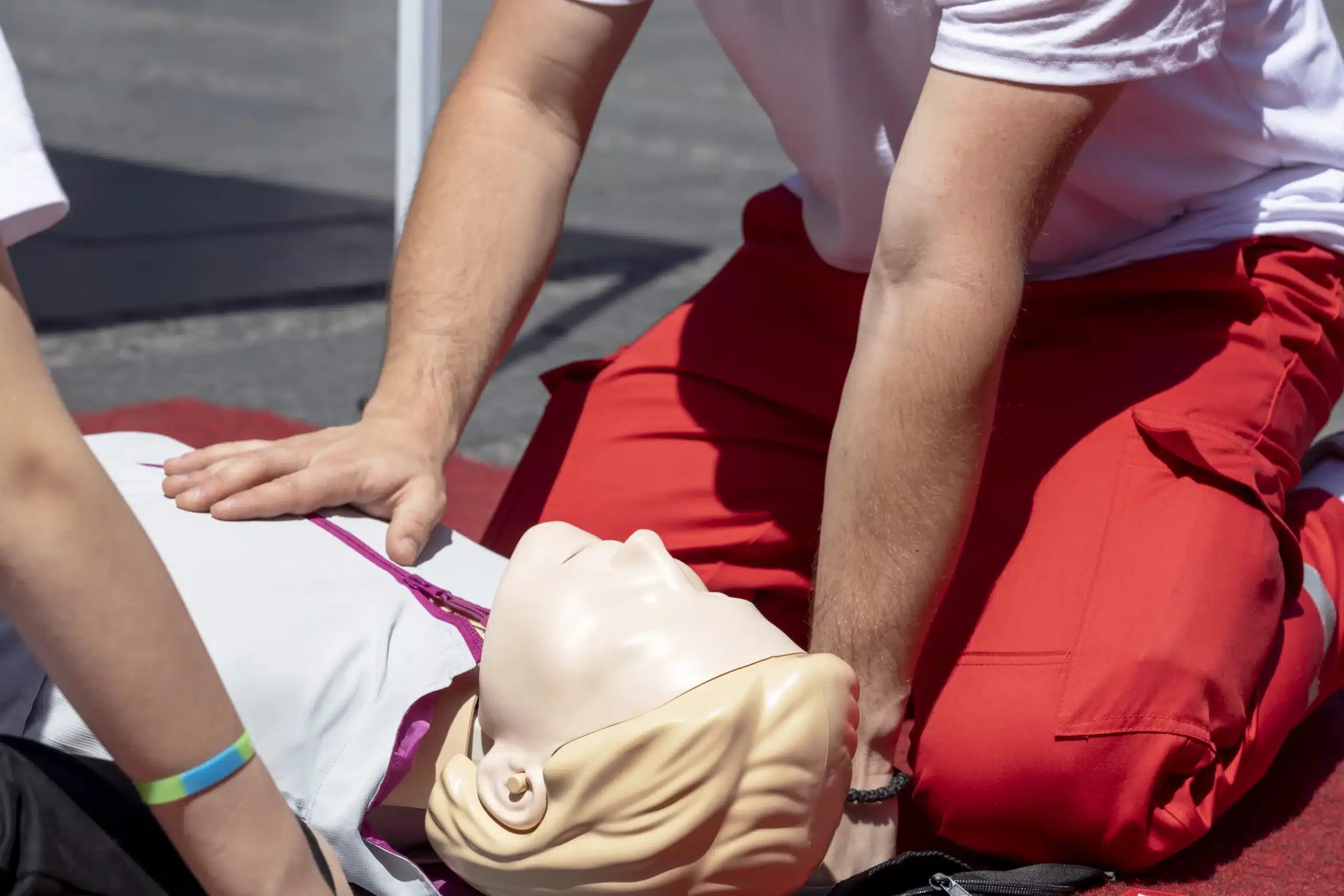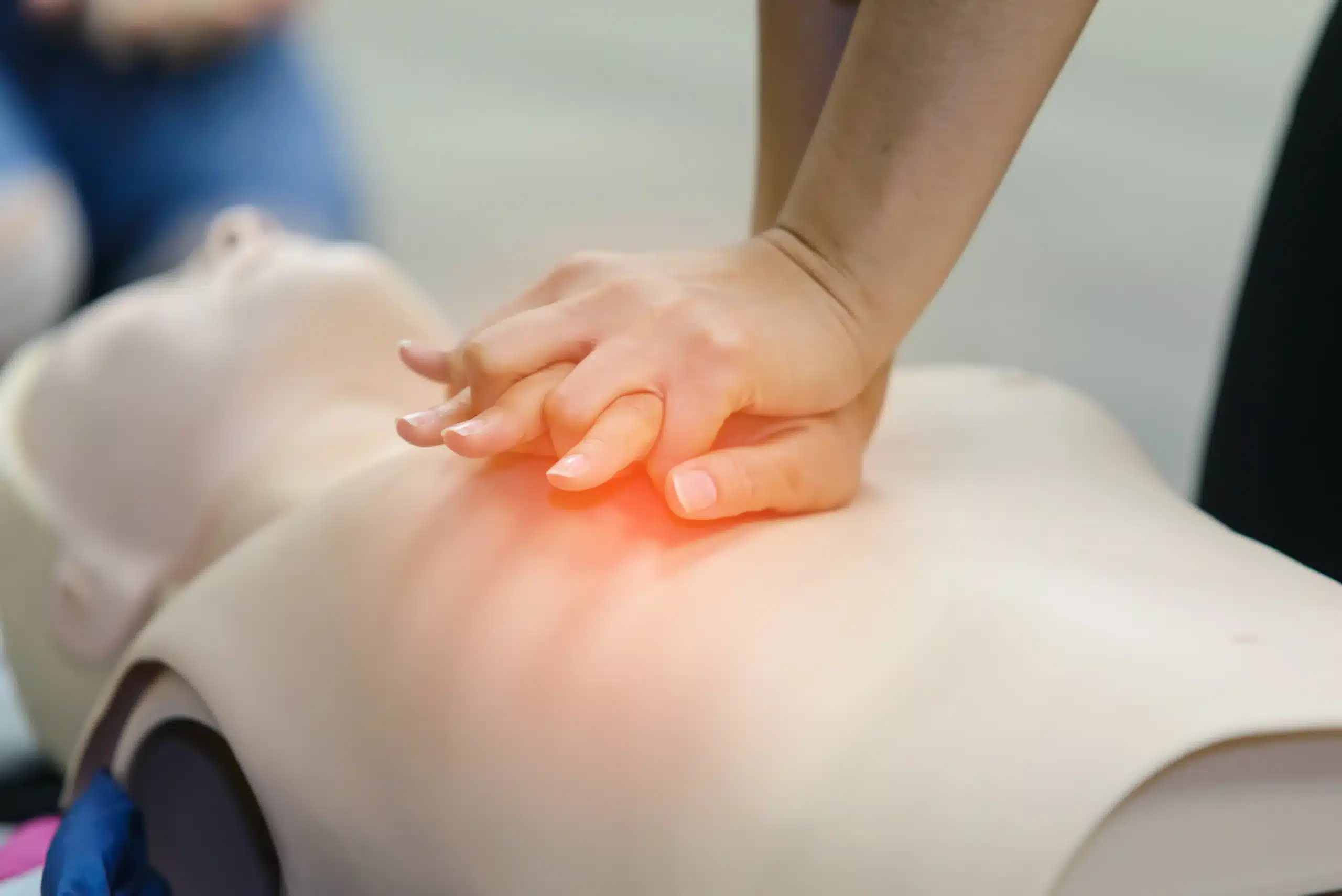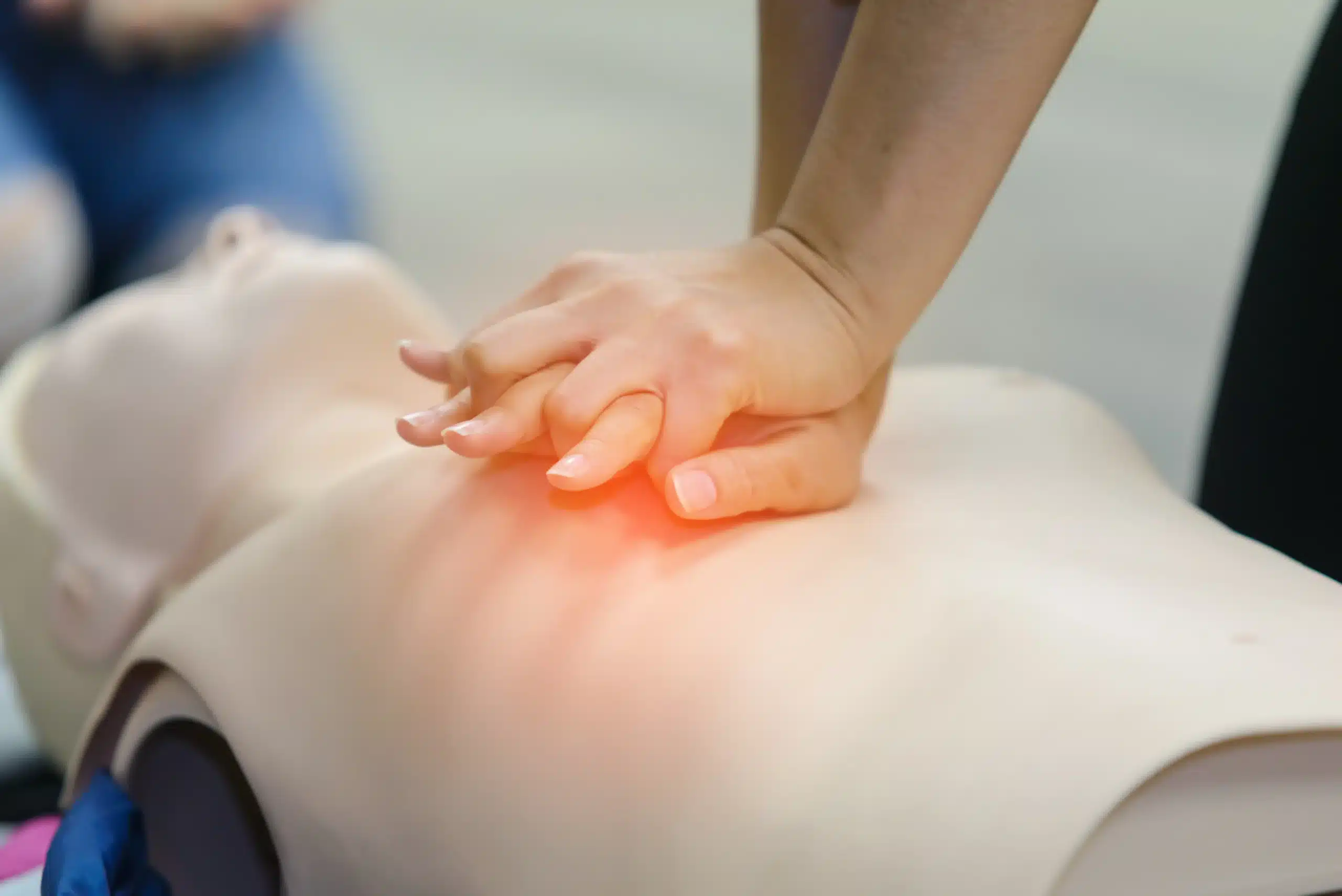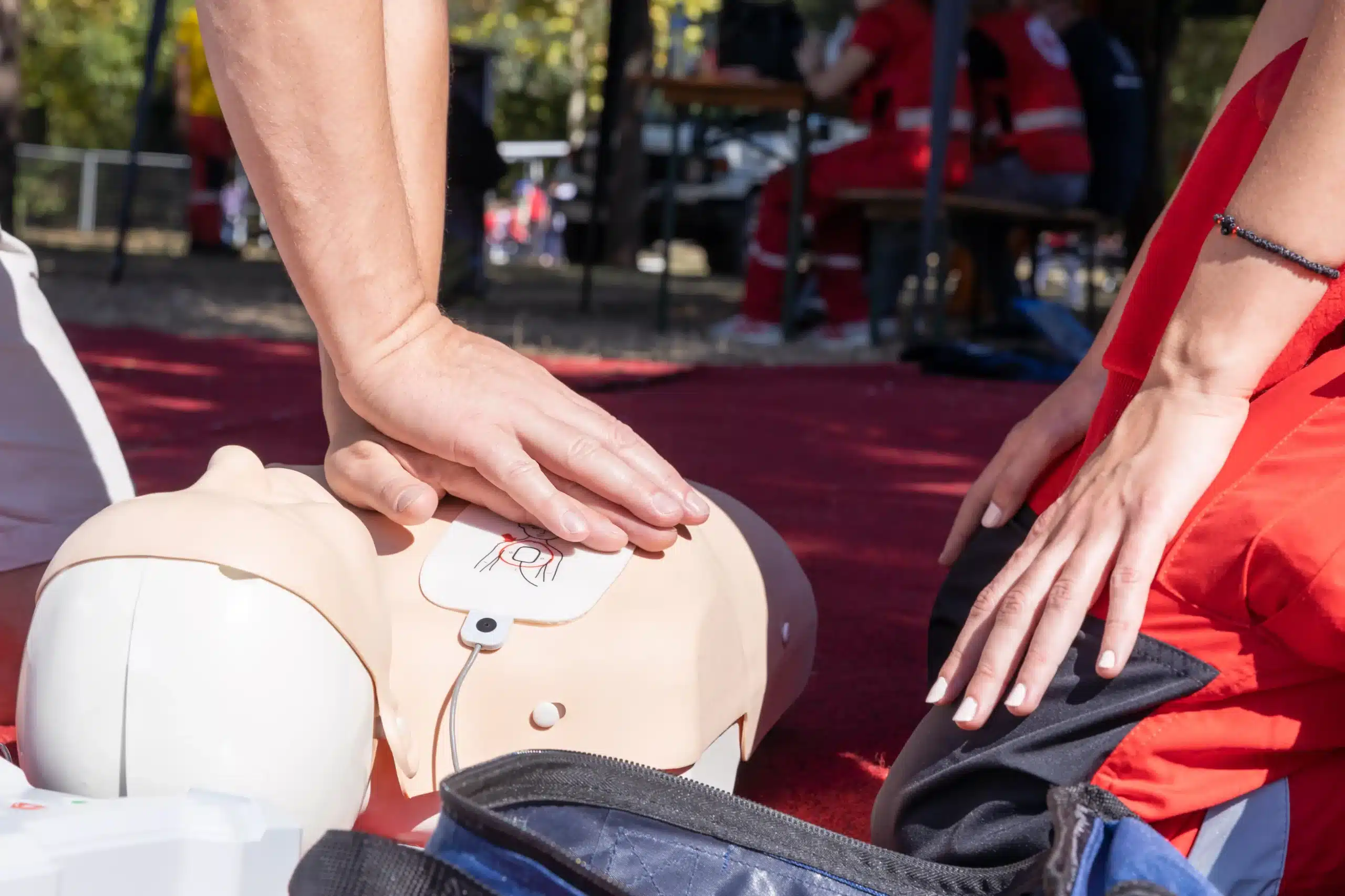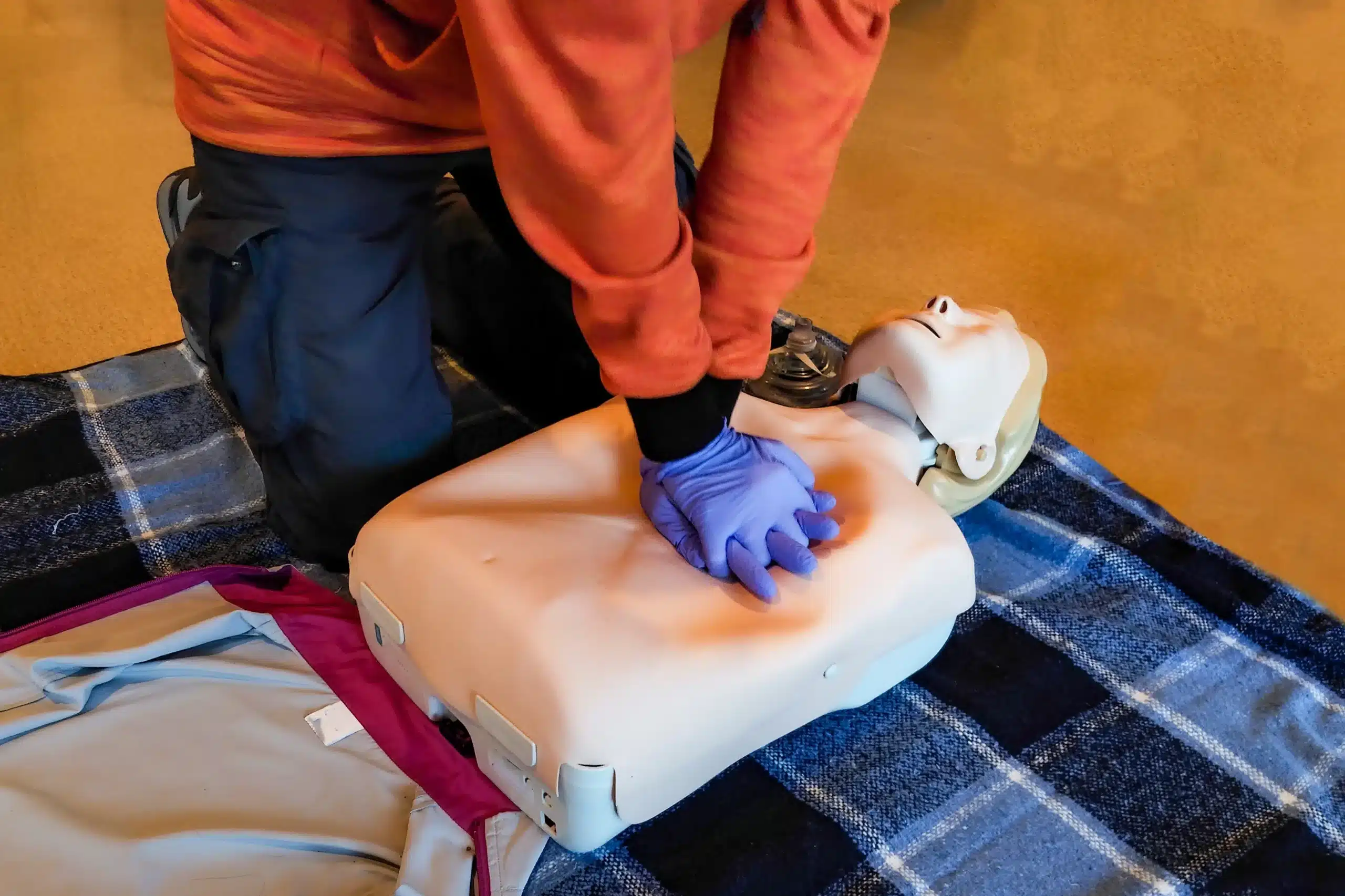Every second counts during a medical emergency. As a healthcare provider, having the right skills can make all the difference. Advanced Cardiac Life Support (ACLS) equips you with the advanced knowledge and techniques to manage critical cardiovascular situations. If you’re searching for advanced cardiac life support in Redwood City, this article will provide valuable insights into ACLS certification, course content, local training providers, and the benefits of this specialized training. We’ll also discuss how adding certifications like BLS, PALS, and First Aid can further enhance your capabilities and contribute to better patient outcomes.
Key Takeaways
- ACLS equips you with advanced life-saving skills: It builds upon basic CPR and first aid, providing the expertise to manage complex cardiac emergencies and improve patient outcomes.
- Choose an ACLS course that fits your needs: Look for AHA-certified providers offering blended learning options and flexible schedules to accommodate your busy lifestyle. Consider factors like location, price, and course format.
- A comprehensive skillset enhances your capabilities: Complement ACLS with certifications like BLS, PALS, and First Aid to broaden your knowledge and prepare you for a wider range of medical emergencies. Regularly practice and renew your certifications to maintain your skills.
What is Advanced Cardiac Life Support (ACLS)?
What is ACLS and why is it important?
Advanced Cardiac Life Support (ACLS) is a set of clinical interventions for the urgent treatment of cardiac arrest, stroke, and other life-threatening medical emergencies. It’s designed for healthcare professionals who either direct or participate in the management of cardiopulmonary arrest or other cardiovascular emergencies. These interventions go beyond the basics of CPR and first aid to address complex situations requiring advanced knowledge and skills. The goal of ACLS is to improve patient outcomes by providing a systematic approach to these critical situations. For those located near Palo Alto, you can find more information on our ACLS certification courses.
Key skills you’ll learn in ACLS training
In an ACLS course, you’ll gain expertise in a range of life-saving interventions. The curriculum covers advanced interventions for cardiac emergencies, including ECG interpretation, medication administration, and airway management. You’ll also learn effective team coordination strategies, crucial for efficient and effective response in high-pressure environments. These skills are essential for healthcare providers working in emergency rooms, intensive care units, and other critical care settings. Contact us to learn more about upcoming ACLS training sessions.
Why ACLS matters for healthcare providers
ACLS training is crucial for healthcare providers. It equips them with the skills to deliver critical care during high-stress situations. Having this specialized training can significantly improve the quality of cardiovascular care and patient outcomes. Beyond the technical skills, ACLS certification demonstrates a commitment to continuing education and professional development in the field of cardiovascular care. This commitment can enhance your career prospects and contribute to a higher standard of care within your healthcare team and community. If you’re ready to advance your skills and contribute to better patient care, explore our ACLS certification options in Palo Alto.
Find ACLS Certification in Redwood City
Palo Alto CPR Classes: Your Local ACLS Provider
For reliable ACLS training in Redwood City, consider Palo Alto CPR Classes. They offer the American Heart Association (AHA) ACLS certification, equipping healthcare professionals with the skills to handle cardiovascular emergencies. With a low price guarantee, they make high-quality training accessible. Their convenient location serves surrounding areas like Redwood City and Menlo Park, making it easy for busy professionals to find a class that fits their schedule. They also offer group discounts, making it a cost-effective option for teams.
Other ACLS Providers in Redwood City
Safety Training Seminars
Safety Training Seminars provides AHA-certified courses in various disciplines, including ACLS. They offer a range of courses to meet the needs of healthcare providers in the Redwood City area.
Heart Start CPR
If you prefer online learning, Heart Start CPR offers the AHA HeartCode ACLS online course. This blended learning option combines online modules with a hands-on skills session, providing flexibility for those with busy schedules.
Kaiser Permanente
Kaiser Permanente Northern California offers BLS, ACLS, and PALS certification renewal and training opportunities specifically for their nurses. Check with Kaiser Permanente for their internal training programs.
Course Formats and Flexible Schedules
ACLS certification courses are available in various formats to suit different learning styles and schedules. The RQI program offered through providers like Palo Alto CPR Classes is a popular choice for its modern approach and efficient learning experience. This program allows healthcare professionals to renew their certifications regularly, ensuring their skills are up-to-date. Many providers also offer weekend and evening classes to accommodate busy professionals.
Pricing, Discounts, and Value
ACLS certification costs can vary, but generally range from $170 to $280 for a full course. Look for providers like Palo Alto CPR Classes, who offer a low price guarantee, ensuring you receive quality training at a competitive price. Group discounts are also often available, making it a smart choice for teams or organizations. Consider the value of the certification when comparing prices – a recognized certification like the AHA ACLS can significantly enhance your career prospects.
Get Ready for Your ACLS Course
So, you’re ready to pursue your ACLS certification—great! Here’s what you can expect from the course and some tips to help you prepare.
Course content and structure
The ACLS curriculum covers a range of advanced interventions for managing cardiac emergencies. You’ll learn updated algorithms and treatment protocols based on the latest American Heart Association (AHA) guidelines. Expect to cover topics like ECG interpretation, medication administration, airway management, and effective team dynamics during resuscitation scenarios. The course emphasizes a comprehensive approach to patient care.
Online learning and in-person skills testing
Many ACLS courses now offer a blended learning format. You can complete the cognitive portion of the course online, which typically takes just a few hours. This online learning offers flexibility for busy professionals. After finishing the online modules, you’ll schedule a short, in-person skills test. You’ll demonstrate your proficiency and receive your ACLS provider card the same day.
Practice your skills and learn real-world scenarios
ACLS courses go beyond memorization. They focus on practical application through realistic simulations and hands-on practice. You’ll work through various emergency scenarios, reinforcing your learning and building confidence in your ability to respond effectively under pressure.
Get certified and maintain your certification
Upon successful completion of the course and skills test, you’ll receive your ACLS certification, valid for two years. To maintain your active status, remember to renew your certification before it expires. Staying current with the latest AHA guidelines ensures you’re always prepared to provide the highest quality patient care.
Add These Certifications to Your Skillset
Building a strong foundation of life-saving skills often involves more than just one certification. Think of it like assembling a well-stocked first-aid kit—you want the right tools for any situation. Along with your ACLS certification, consider adding these valuable credentials to your repertoire:
Basic Life Support (BLS)
Basic Life Support (BLS) is the cornerstone of emergency medical care. This certification focuses on the fundamental skills needed to respond to life-threatening situations, such as cardiac arrest and respiratory distress. BLS training equips you with the knowledge and confidence to perform high-quality CPR, use an AED, and provide effective ventilation. It’s a must-have for healthcare providers and anyone who wants to be prepared for an emergency. For those in Redwood City, CPR classes offer convenient options for obtaining your BLS certification.
Pediatric Advanced Life Support (PALS)
If you work with children, Pediatric Advanced Life Support (PALS) is an invaluable certification. PALS builds upon the foundation of BLS, providing specialized knowledge and skills for managing pediatric emergencies. This training emphasizes effective team dynamics and communication, crucial elements in high-stress situations. You’ll learn to recognize and treat respiratory and cardiac emergencies specific to infants and children, giving you the tools to provide the best possible care. Consider exploring PALS certification options in nearby Palo Alto.
First Aid and other helpful courses
Beyond BLS and PALS, consider expanding your skillset with First Aid and other specialized courses. First Aid training teaches you how to manage common injuries, such as cuts, burns, and fractures. Additional courses, like opioid overdose response and bloodborne pathogens training, address critical health concerns and can be essential for certain professions. By diversifying your certifications, you become a more well-rounded and adaptable healthcare professional. Check out local resources in Redwood City for First Aid and other helpful courses.
Make the Most of Your ACLS Training
Choose the right provider in Redwood City
Finding the right ACLS provider is key to a positive learning experience. In Redwood City, you’ll find several options for your training. For a comprehensive program with a focus on quality instruction and flexible scheduling, consider Palo Alto CPR Classes for your ACLS certification. They offer American Heart Association (AHA) certified courses, ensuring you receive training that meets the highest standards. You can also explore other providers like Safety Training Seminars, or check with organizations such as Kaiser Permanente for their course offerings. Do your research to find a provider that fits your needs and learning style.
Tips for ACLS Certification Success
Preparing for your ACLS course can make a big difference in your confidence and overall success. Familiarize yourself with the course content ahead of time. The online portion often allows you to learn at your own pace, so take advantage of this flexibility. Practice your skills regularly, especially those involving essential algorithms and procedures. Don’t hesitate to ask your instructor questions – they are there to support you. Real-world scenarios and simulations are invaluable for applying your knowledge and building your critical thinking skills.
Benefits of AHA Certification
Earning your AHA ACLS certification provides you with more than just a credential; it equips you with the skills to handle life-threatening cardiovascular emergencies. The AHA’s rigorous standards ensure you receive high-quality training that is recognized and respected throughout the healthcare community. This certification demonstrates your commitment to providing excellent care and can enhance your career prospects. Most importantly, it empowers you to make a real difference in critical situations.
Maintain and Renew Your ACLS Skills
Your ACLS journey doesn’t end with initial certification. These skills require regular practice to stay sharp. Your ACLS certification is valid for two years. Plan to renew your ACLS certification before it expires to maintain your active status. Consider refresher courses or continuing education opportunities to reinforce your knowledge and stay up-to-date with the latest guidelines. Consistent practice and ongoing learning are essential for providing the highest quality patient care.
Related Articles
- ACLS Courses in Palo Alto: Complete Guide
- Online ACLS Classes Menlo Park: Your Guide – Palo Alto CPR Classes
- PALS Certification: Find a Course in The Redwood City
- AHA ACLS Classes in Palo Alto, CA – Palo Alto CPR Classes
- ACLS HeartCode in Palo Alto: Flexible Training Options – Palo Alto CPR Classes
Frequently Asked Questions
What’s the difference between BLS and ACLS?
BLS focuses on immediate life-saving techniques for anyone to use, like CPR and using an AED. ACLS builds upon those basics with more advanced medical procedures for healthcare professionals, such as medication administration and ECG interpretation, to manage complex cardiovascular emergencies. Think of BLS as the foundation and ACLS as the next level of specialized care.
How can I find an ACLS course near me?
Several organizations offer ACLS certification. Start by searching online for “ACLS courses near me” to find local providers. You can also check with hospitals, healthcare systems, and professional organizations for training opportunities. Be sure to choose a provider offering the American Heart Association (AHA) ACLS certification for a recognized and respected credential. If you’re in the Redwood City area, Palo Alto CPR Classes is a great option.
What if I don’t work in a hospital? Do I still need ACLS?
While ACLS is crucial for hospital-based healthcare providers, it can also benefit those in other settings. Anyone who might encounter cardiovascular emergencies, such as paramedics, flight nurses, and certain specialized medical professionals, can benefit from the advanced training. Even if not strictly required for your role, ACLS demonstrates a commitment to advanced life support skills, which can be a valuable asset.
How long does ACLS certification last, and how do I renew it?
ACLS certification is typically valid for two years. To maintain your credentials, you’ll need to renew your certification before it expires. Renewal usually involves completing a refresher course that covers the latest guidelines and procedures. Check with your certifying organization for specific renewal requirements.
What can I do to prepare for my ACLS course?
Reviewing the course materials beforehand can give you a head start. Many courses offer online learning modules, allowing you to learn at your own pace. Practicing essential skills, like ECG interpretation and using algorithms, will build your confidence. Don’t be afraid to ask your instructor questions during the course – they are there to help you succeed.
